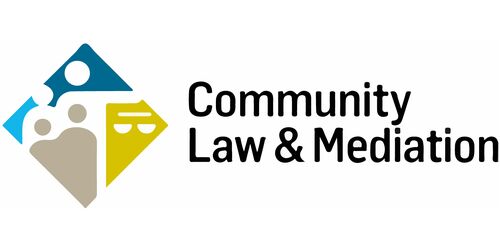Community Law & Mediation (CLM) is an independent, community-based organisation with centres in Dublin (Coolock) and Limerick City. CLM works to empower individuals experiencing disadvantage by providing expert and free legal information, advice, education, and mediation services. Throughout the Covid-19 pandemic, CLM has continued to provide these much-needed services online and by phone consultation.
The Casebase Database
Through its database, Casebase, CLM works to provide insight into decisions on social welfare appeals. For anyone making an appeal, or helping someone else to do so, they can find out what happened in similar cases, and what arguments were successful. The case reports published on Casebase relate to a range of social welfare benefits and payments such as Family Income Supplement (now Working Family Payment), Habitual Residence Condition, State Pension, Child Benefit, Jobseekers Allowance, Illness Benefit, Disability Allowance, Rent Supplement, along with many others.
Latest Case Examples
New reports are always being added to Casebase, covering a range of areas and often topical new judgments and decisions. Recently, reports on two cases that were heard together were posted on Casebase. Both cases raised the question of whether mortgage repayments paid by an ex-partner should be taken into account when assessing the means of a claimant.
In the first case, (Margaret Bracken v. Minister for Employment Affairs and Social Protection (DSP)) (G0111), linked here, the Respondent took a monthly mortgage repayment, paid by the applicant’s ex-partner on the house in which she was residing, into account when assessing the Applicant’s means as part of her disability allowance application. The Applicant’s appeal of this decision to the Social Welfare Appeals Office (SWAO) was refused and the Chief Appeals Officer (CAO) subsequently refused to revise the decision.
The Applicant then sought to have the decision of the Respondent quashed in the High Court, arguing the Respondent’s interpretation of the legislation was irrational and arbitrary. The core issue in the case was whether the non-cash benefits that can be assessed for the purpose of deciding an applicant’s rate of disability allowance included mortgage repayments. The Court found that mortgage repayments do come within the meaning of a non-cash benefit and as mortgage payments paid by a relative on a property in which an applicant resides provide a cash value to the applicant - the applicant would otherwise have to pay housing costs - the full value of those mortgage repayments will be taken into account in determining the means of the applicant.
The second case (Deirdre Brennan v Minister for Employment Affairs and Social Protection) (G0112), linked here, was a challenge to the decision of the Respondent to use the full value of monthly mortgage repayments made by the Applicant’s ex-partner in assessing her means in a One Parent Family Payment (OPFAP) application. The Applicant appealed the decision to the Social Welfare Appeals Office, relying on a previous decision concerning a similar applicant in whose case only 50% of the mortgage repayment was taken into account because of the joint ownership of the property. The Applicant argued that as her house was in joint names, her ex-partner derived a benefit from the mortgage payments and so only half the payments should be used in the assessment.
The SWAO dismissed the Applicant’s appeal as did the CAO. The Applicant then applied to the High Court for judicial review of the CAO’s decision. The Court held that in assessing an applicant’s means for the purpose of calculating a OPFP, the DSP was entitled to take into account mortgage repayments made by a liable relative and while legislation provides for a portion of the mortgage repayments to be disregarded and the remainder halved, the legislation does not provide that only half the mortgage repayments should be used in assessment of means on the basis the liable relative is a joint owner.
In a third and separate case posted recently on Casebase, Georgeta Voican v. Chief Appeals Officer, Social Welfare Appeals Officer, Minister for Employment Affairs and Social Protection, Ireland and the Attorney General (G0113), linked here, concerned the refusal of disability allowance on the basis that Ms Voican’s right to reside in Ireland was predicated on her continued dependence upon her daughter. The decision was upheld on appeal by the CAO and the Applicant brought judicial review proceedings before the High Court arguing a family member of a migrant worker did not have to be self-sufficient and that the refusal of her claim was inconsistent with equal treatment imperatives.
The Court found for the Applicant, quashing the decision of the CAO to refuse the claim for disability allowance and establishing the principal that once a migrant worker and their qualifying family members establish a right to reside for a period greater than three months in another EU Member State, they are entitled to equal treatment with Irish citizens. This right to equal treatment extends to the provision of social assistance payments such as disability allowance. This case is currently under appeal by the Respondents.
Accessing Casebase
Casebase is free-to-access and may be accessed here. Individuals and organisations interested in contributing a case to Casebase, or finding out more about Casebase, please contact CLM’s social welfare solicitor Ruth Barry at rbarry@communitylawandmediation.ie or phone 01 847 7804.
